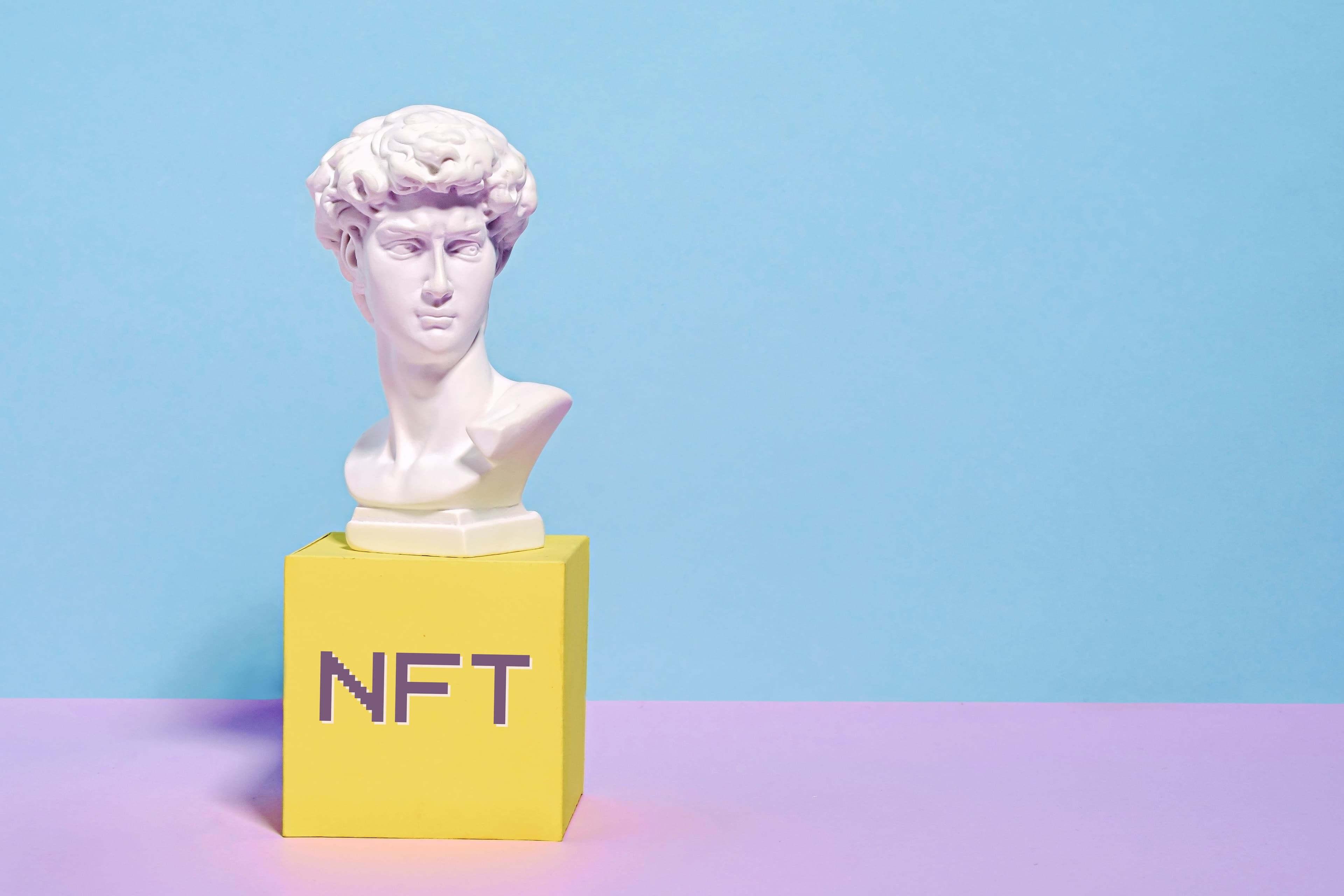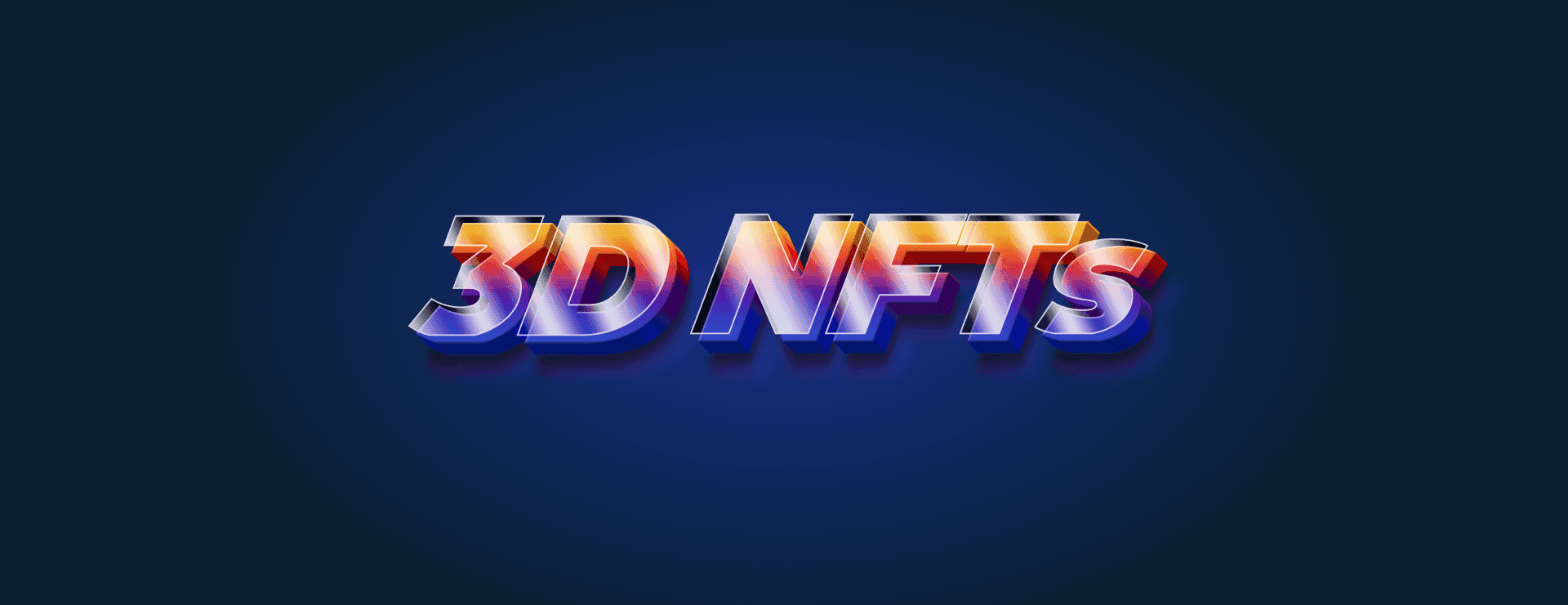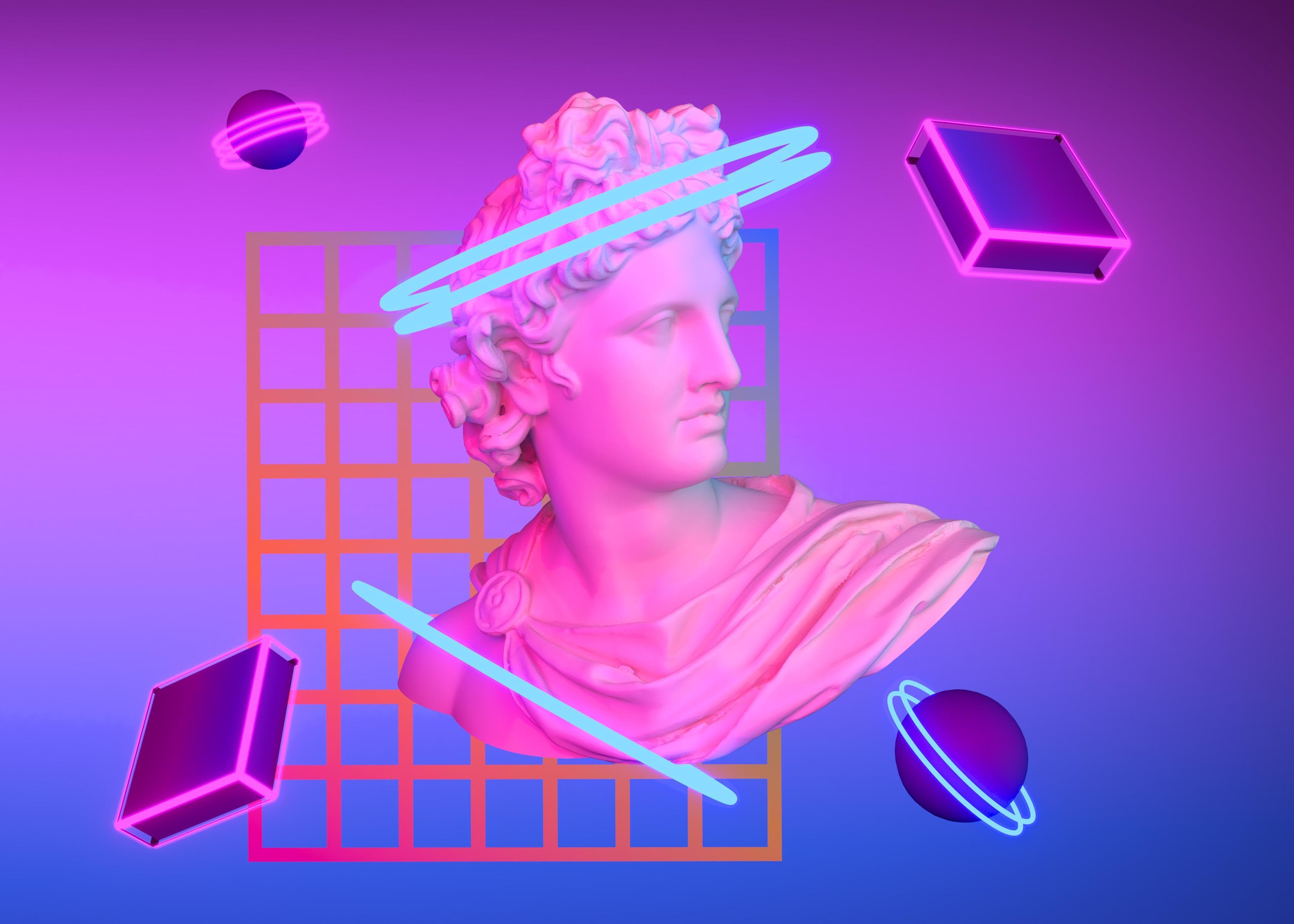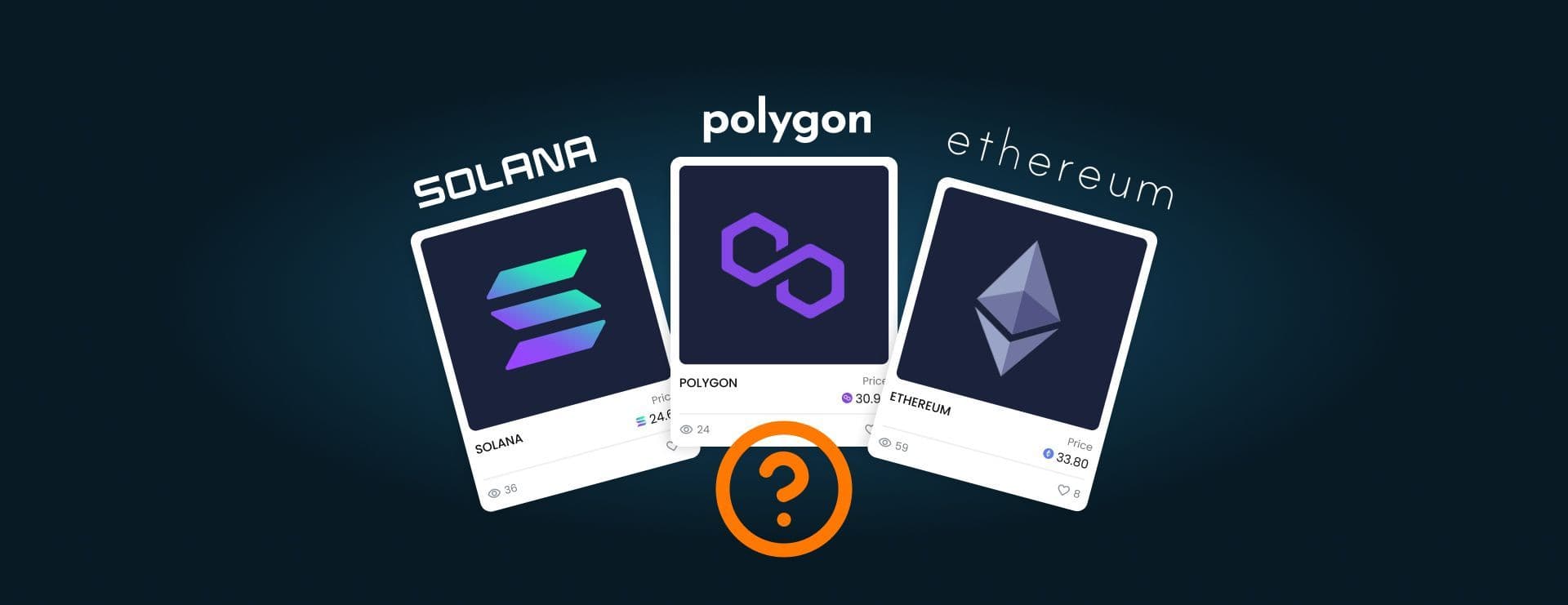In a world where digital ownership has become just as significant as physical possession, NFTs are the game-changers. But as the digital Wild West expands, how do you pick the right partner to navigate this complex frontier of NFT marketplace development? Welcome to the guide that will light your path, demystify the choices, and empower you to make the best decision for your digital venture.
The rise of Non-Fungible Tokens (NFTs) has significantly impacted the digital world. As unique digital assets, that represent ownership or proof of authenticity for a specific item or piece of content, NFTs have opened new avenues for digital art, virtual real estate, and various digital collectibles. Central to this revolution are NFT marketplaces, platforms where NFTs are bought, sold, and traded. This guide will help you understand NFT marketplaces, their essential features and how to choose the right company for NFT marketplace development.
Understanding NFT Marketplaces
The rising interest and demand for NFTs necessitate robust platforms for their trade - NFT marketplaces. These digital arenas not only act as intermediaries between buyers and sellers but also provide a secure and reliable environment for transactions.
Their role extends beyond facilitating trade, offering features like user profiles and analytics tools for tracking sales and performance. As the need for such platforms intensifies, these marketplaces are stepping up to streamline the complex technical aspects of NFT transactions.
This allows creators to focus on selling their unique digital assets and buyers to discover and purchase these assets with ease, underscoring the value and uniqueness of the NFTs they're transacting with.
What is an NFT marketplace?
An NFT marketplace is an online platform where users can create, buy, sell, and trade NFTs. These platforms function as digital galleries, allowing creators to display their digital assets and potential buyers to browse, bid, and purchase.
These marketplaces should include features like user registration and profile management, NFT trading platform, listing and browsing, auction and fixed price sales, and secure payment processing. They should also enable NFT creation and minting, provide user reviews and ratings, and offer analytics and reporting to help users make informed decisions.
Types of NFT Marketplaces
There are generally two types of NFT marketplaces – general and niche.
General Marketplaces
These are NFT marketplaces that deal with a wide range of digital assets. They offer a variety of categories, including art, music, virtual real estate, domain names and more. They cater to a broad audience and provide a platform for any type of NFT. Examples include OpenSea, Rarible, and Mintable.
Niche Marketplaces
These are specialized NFT marketplaces focused on specific categories. For instance, NBA Top Shot is a marketplace solely for NBA collectibles, and SuperRare focuses solely on single-edition digital artworks. These specialized marketplaces cater to a particular community, offering a curated experience tailored to their interests.
Top NFT Marketplaces
As of now, some of the top NFT marketplaces include OpenSea, Rarible, and NBA Top Shot.
OpenSea, boasting the largest collection of NFTs, offers a wide range of categories, making it a one-stop shop for various NFT enthusiasts. Rarible, on the other hand, has made a name for itself with its decentralized approach, allowing any user to create and sell NFTs. NBA Top Shot has captivated sports fans with its unique concept of trading officially licensed NBA highlights as NFTs. Each of these platforms has carved out a niche, demonstrating the possibilities of NFT marketplaces and their potential to reshape digital transactions and ownership.
At the moment, Blur NFT marketplace is revolutionizing the NFT market in 2023 through its $BLUR token airdrop, which offers a remarkable return on investment and reduces trading costs. This project has been a total game changer in the world of digital art and NFTs. Believe it or not, it's even overtaken OpenSea when it comes to volume! With Blur, buying, selling, and listing NFTs is a piece of cake - and the best part? There are no transaction fees or royalties. Supported by major figures in the cryptocurrency sector, Blur is set to be the primary platform for digital art and NFT trading.
Essential Features of an NFT Marketplace
- User registration and profile management
User registration and profile management are vital components of an NFT marketplace. They contribute to the smooth functioning of the marketplace, foster trust among users, enhance the user experience, and provide a level of security and verification that's crucial in the digital world of NFTs.
- Listing and browsing NFTs
NFT marketplaces should enable easy listing of NFTs for sale, and equally easy browsing and searching for potential buyers. Features might include categorization, filters, and search functions.
- Auction and fixed price sales
This feature allows sellers to list their NFTs for auction or at a fixed price. Auctions can generate competition and potentially higher sale prices, while fixed-price listings offer predictability and ease of transaction.
- NFT creation and minting
Some of NFT platforms and marketplaces offer tools for users to create and mint their own NFTs directly on the platform. This can be a big draw for artists and creators looking to enter the NFT space.
- Secure payment processing
Given the high-value nature of many NFT transactions, secure payment processing is crucial. This generally involves integration with a blockchain wallet like Metamask or Trust Wallet and might include features like escrow services for buyer and seller protection.
- User reviews and ratings
To build trust in the marketplace, it's helpful to have a system where users can rate and review each other based on their transactions.
- Analytics and Reporting
To all the sellers and creators out there, we know how important it is for you to understand your customers and your performance. That's why any worthwhile NFT marketplace should provide you with comprehensive insights and reports. This way, you can gain a deeper understanding of your sales trends and customer habits, turning data into action.
Choosing the Right Blockchain Platform
Choosing the right blockchain platform for your project is as essential as selecting the sturdiest foundation for your house. A good pick promises stability and success, while a poor choice could lead to disaster. Let's explore some key contenders you might want to consider.
Solana possesses impressive speed and can manage numerous transactions simultaneously, contributing to its cost-effectiveness. However, its relatively recent introduction to the market and subsequent testing phase, along with a still-growing user and developer base, serve as its limitations.
In contrast, Ethereum boasts numerous advantages, including a robust developer community. It serves as a platform for a myriad of decentralized applications (dApps). Yet, its shortcomings lie in potential speed issues and elevated transaction costs due to high gas fees.
The Binance Smart Chain (BSC) offers compatibility with Ethereum, making it a convenient alternative for developers looking to transition their projects. It operates swiftly and maintains low transaction costs. However, its association with Binance raises questions about its level of decentralization. This could potentially evoke concerns about trust and security risks.
Finally, let's not forget about the myriad of other blockchain platforms in the mix. While Ethereum, BSC, and Solana might hog the limelight, there's a wide range of other blockchains each offering their own unique selling points. For example, platforms like Polkadot, Cardano, and Flow each have their unique quirks and strengths. Notably, not all blockchains possess a mature NFT marketplace, indicating ample opportunity for growth and innovation. Venturing into these lesser-explored platforms could reveal a trove of untapped potential.
In conclusion, choosing the right blockchain platform depends heavily on your project's specific needs and constraints. Before making your choice, carefully consider factors such as:
transaction speed
cost
community support
platform maturity
And remember, the blockchain world is vast and continually evolving, so keep an eye out for new opportunities.
Read: Top 3 NFT Blockchains: Ethereum vs. Polygon vs. Solana
Choosing the Right NFT Marketplace Development Company
Finding the ideal NFT marketplace development company can be a pivotal decision in the success of your venture. You want a company that embodies a strong and experienced design and development team, as the aesthetic appeal and functional robustness of your platform will significantly impact user experience and engagement. But technical expertise alone isn't enough.
A company with a dedicated research team can provide invaluable insights into understanding your target market, helping to hone your product and strategy to meet the needs of your end customer more effectively.
Moreover, look for a company that provides a comprehensive range of services. Of course, design and development are the cornerstones of the project, but that's just the beginning. A company that can help with launching and marketing your platform will give you a strong start out of the gate.
Platform monetization services are another key area – the company should be able to advise on and implement effective ways to generate revenue from your marketplace.
Legal assistance can also be critical, as the world of NFTs is still a developing field legally, and it's essential to ensure your platform is compliant with all relevant laws and regulations.
Finally, ongoing platform maintenance is a must to ensure your NFT marketplace remains up-to-date, secure, and operational. The right partner will offer a holistic approach, going beyond mere development services to ensure the long-term success of your platform.
Read: How to Find the Best Web3 Development Agency for Your Project
Designing the NFT Marketplace
Creating an NFT marketplace isn't a stroll in the park. It requires:
a careful blend of technical acumen
foresight and
an unwavering focus on user experience (UX) design
At the heart of an engaging platform are well-crafted user personas. From prolific artists and savvy NFT traders to casual investors dipping their toes into the vibrant digital asset pool, each persona must be understood, respected, and catered to.
The whole development process begins with meticulous wireframing and prototyping, laying the groundwork for a seamless user journey. This blueprint then undergoes rigorous usability testing, fine-tuning each interaction to ensure that it's intuitive and satisfying. Of course, a stellar user experience doesn't stop at functionality; it also hinges on stellar user interface (UI) design.
UI design is where aesthetics meet the purpose. Choosing the right color scheme and typography can elevate the platform from a mere marketplace to an enjoyable visual experience. The design should be more than just eye-catching—it should also communicate the brand's identity and ethos effectively. Consistency is key, to establishing a coherent visual language that persists across different sections and functions of the platform.
But good design doesn't stop at consistency—it must also be accessible. Designing for accessibility means ensuring that everyone, regardless of their abilities or disabilities, can engage with the platform without hindrance. This includes:
visual cues for those with color blindness,
text alternatives for visually impaired users, and
easy navigation for those with motor disabilities.
Finally, in this age of smartphones, optimizing for both mobile and desktop is a necessity, not an option. Mobile users should have just as enjoyable and efficient an experience as their desktop counterparts.
After all, the success of an NFT platform development and marketplace hinges on the ease and delight of its users' experience, no matter what device they're on. Designing such a platform is no small feat—it requires a true expert's touch.
Developing the NFT Marketplace
When it comes to the complex task of an NFT marketplace development, having a team of dedicated experts is crucial. These professionals need to possess a wide range of skills and a deep understanding of several domains and key areas.
One such area is backend development, which forms the backbone of the platform. It's where all the data management and business logic happens, and without proficient backend developers, even the most well-designed NFT marketplace software would fail to function optimally.
Another significant aspect to consider is the development and deployment of smart contracts. These self-executing contracts with the terms of the agreement directly written into code are the bread and butter of any NFT marketplace development solutions. They dictate the rules of the platform and ensure that all transactions are secure, transparent, and immutable. As a result, an expert in smart contracts is indispensable for any successful, NFT development project.
Read: Smart Contract Audit - What is it and How Much Does it Cost?
In terms of storage solutions, IPFS, or InterPlanetary File System, is often the go-to choice for storing and accessing NFT data. This is primarily due to its decentralized nature, which aligns perfectly with the ethos of the blockchain technology that underpins NFTs. This requires expertise not just in IPFS, but also in creating effective API integrations that allow seamless communication between different parts of the platform.
While the development of backend and smart contract platforms is undeniably vital, the importance of front-end development should never be overlooked. This is where web development frameworks and libraries come into play. These are the magic wands that help us craft an intuitive user interface, creating a space where users can engage and interact with ease.
Also, it's absolutely essential that our platform incorporates a responsive design to ensure it looks and performs perfectly, regardless of the device in use. And we mustn't lose sight of cross-browser compatibility - it's non-negotiable. We're committed to making sure everyone can access our platform smoothly, no matter which browser they're fond of.
Last, but certainly not least, rigorous testing and debugging is a critical step. This process ensures that we catch and fix any potential snags before the platform goes live, guaranteeing users a seamless and glitch-free experience. As you can see, developing an NFT marketplace platform requires a multi-disciplinary team of experts, all working together to create a platform that is secure, user-friendly, and technologically sound.
Launching and Marketing Your NFT Marketplace
Launching and marketing your NFT marketplace involves a range of strategies:
- Pre-launch checklist
Before launching your NFT marketplace, ensure all features work as expected, all legalities are in order, and a marketing plan is in place.
- Launch strategies and promotion
Promote your marketplace through social media marketing, influencer partnerships, and PR and media coverage to attract users and create buzz.
- Ongoing marketing and growth strategies
After launch, continue marketing efforts to drive growth. This can include content marketing and SEO, as well as community building, and implementing user retention and engagement tactics.
Monetizing Your NFT Marketplace
Monetizing your NFT marketplace can be achieved through:
Transaction Fees
Charge a fee for every transaction made on your platform.
Premium Listings and Advertising
By offering premium listing spots or advertising spaces, you're essentially selling prime digital real estate for NFTs to get noticed quicker and more often.
Subscription Models
Offer premium features or benefits to users who subscribe to a monthly or annual plan.
Partnerships and Collaborations
Collaborate with artists, brands, or other platforms to generate revenue.
Legal and Regulatory Considerations
When developing your NFT marketplace, consider various legal and regulatory aspects:
Intellectual Property Rights
Ensure all NFTs listed on your platform respect intellectual property rights. Protecting one's innovative ideas, inventions, and creative works is paramount to ensuring long-term success.
Know Your Customer (KYC) and Anti-Money Laundering (AML) Regulations
Adhering to KYC and AML requirements involves thorough verification of customer identities and transactions, ensuring transparency and accountability within the business operations.
Privacy and Data Protection
Ensure your platform complies with data protection laws and respects user privacy. Businesses must adhere to applicable laws and regulations governing the collection, storage, and use of personal data. Safeguarding customer privacy and implementing robust data protection measures not only builds trust but also helps prevent potential legal issues and reputational damage.
Tax Implications
Understand the tax implications for your business and for users buying and selling NFTs on your platform. It is essential to understand and comply with tax laws and regulations to ensure accurate reporting and timely payment of taxes. Failure to do so may result in penalties, fines, or even legal repercussions. Consulting with tax experts or accountants can provide valuable guidance in navigating the complex tax landscape and optimizing tax obligations.
Jurisdiction-specific Regulations
Be aware of any specific regulations in the jurisdictions where you operate. These regulations can encompass a wide range of aspects, including licensing requirements, consumer protection laws, advertising regulations, and labor laws. Understanding and adhering to these regulations not only ensures legal compliance but also helps businesses operate smoothly within the specific jurisdiction
Seeking Legal Counsel
It's advisable to seek legal counsel to ensure your marketplace complies with all necessary laws and regulations. Consulting with experienced attorneys who specialize in the relevant areas can provide invaluable insights and guidance. Legal professionals can help navigate complex legal frameworks, identify potential risks, and ensure compliance with applicable laws, thereby safeguarding the business's interests and minimizing legal liabilities.
In conclusion, developing, launching, and running an NFT marketplace involves a complex blend of technical development, marketing strategy, monetization tactics, and legal compliance. With the right expertise and planning, however, you can create a successful and profitable NFT marketplace.
Maintaining and Scaling Your NFT Marketplace
Once your NFT marketplace is live, your focus will shift toward maintaining and scaling your platform.
Monitoring Platform Performance and User Feedback
To ensure your marketplace remains competitive and user-friendly, it's important to regularly monitor its performance. This can be achieved by analyzing usage data, keeping an eye on transaction speeds and success rates, and actively seeking user feedback. Listening to your users can provide valuable insights into how you can improve your marketplace.
Implementing Feature Updates and Improvements
Continuous improvement is key to the success of any digital platform. Regularly roll out feature updates and improvements based on user feedback and technological advancements. This could be anything from enhancing the search function to introducing new categories of NFTs.
Security Audits and Updates
Given the high-value nature of transactions on NFT marketplaces, security is paramount. Regular security audits should be conducted to identify and address potential vulnerabilities. Keeping your security measures up to date can help protect your users and your reputation.
Expanding to New Niches or Markets
As your marketplace grows, consider expanding to new niches or markets. This could mean introducing new categories of NFTs, or expanding your operations to new regions or countries.
Building Strategic Partnerships
Building strategic partnerships can contribute to scaling efforts. This could involve partnering with other platforms, artists, or brands to offer new features or exclusive content.
Navigating the Future of NFT Marketplaces
As the NFT space continues to evolve, it's important to stay ahead of trends and technological advancements.
Upcoming Trends and Technologies
Stay informed about upcoming trends and technologies in the developing NFT marketplaces and broader blockchain space. This could include anything from new types of NFTs to advancements in blockchain technology that could impact your business goals and marketplace.
The Role of NFT Marketplaces in the Metaverse
As virtual worlds, also known as metaverses, continue to develop, NFTs are set to play a major role. NFT marketplaces could become the main hubs for trading digital assets in these virtual worlds. Consider how your nft marketplace development services could cater to this growing market.
Cross-Chain and Interoperability Solutions
As multiple different blockchain networks and platforms are being used for NFTs, cross-chain and interoperability solutions are becoming increasingly important. These technologies allow NFTs to move across different blockchains, opening up opportunities for wider trading and ownership.
Sustainable Practices and Environmental Impact
The environmental impact of NFTs and blockchains is a growing concern. Look into more sustainable practices, such as using more energy-efficient blockchains or offsetting your carbon footprint, to make your marketplace more environmentally friendly.
Conclusion
Selecting the right company for NFT marketplace development is a decision that can make or break your venture. It is vital to choose a company that not only understands the technical aspects but also has a deep understanding of the NFT market, user behavior, and legal implications.
The right partner will guide you through every stage of the process - from design and development to launch, marketing, monetization, and ongoing maintenance. They will help you create a marketplace that stands out in the crowded NFT space, appeals to your target audience, and operates smoothly and securely. So, take your time, do your research, and choose wisely. Your success in the exciting world of NFTs depends on it.




